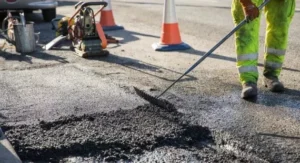Highways England has started ground investigations as it prepares to start further work on trhe A66 trans-Pennine route.
The work includes testing different ground conditions along the route and soil types. For this, engineers are using ground penetrating radar and have up to ten crews operating from two site compounds on the A66, drilling approximately 300 boreholes and digging 300 inspection pits to collect the information, according to Highways England.
It said: “This work is vitally important as we head towards a final public consultation on the options and submitting our application to the Planning Inspectorate which, subject to the outcome, will allow us to start construction in 2024. These ground investigations will help us to refine the designs of the several new bypasses and upgrades of the existing road as part of the £1 billion A66 Trans-Pennine project.”
The Highways England A66 scheme includes the construction of a new bypass, dualling along existing sections of road and major junction improvements.
Last May, the Department for Transport (DfT). has given details on the route for the A66 trans-Pennine dualling project, which include five new bypasses, key junction improvements and an underpass at the congested Kemplay Bank roundabout near Penrith.
The announcement, following public consultation, reveals the list of improvements Highways England wants to now take into construction. The A66 is both a nationally important road, linking the M6 at Penrith in Cumbria with the A1(M) at Scotch Corner in North Yorkshire, and a key regional route. As well as benefiting local people the upgrade will support tourism and freight traffic, improving connections between ports in Scotland and Northern Ireland and those in England at Hull and Felixstowe, says the DfT.
























